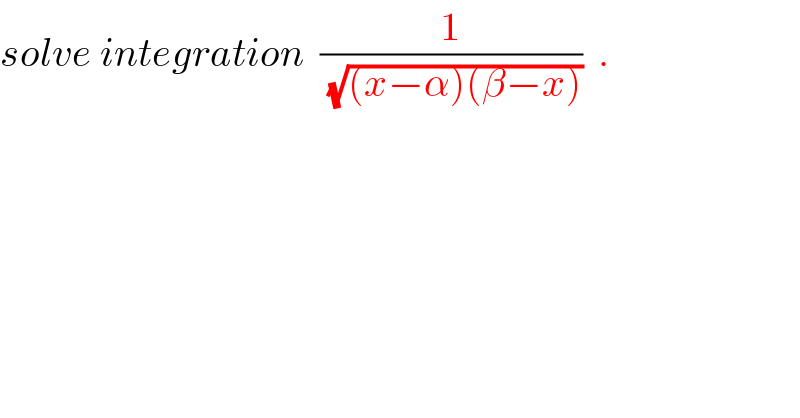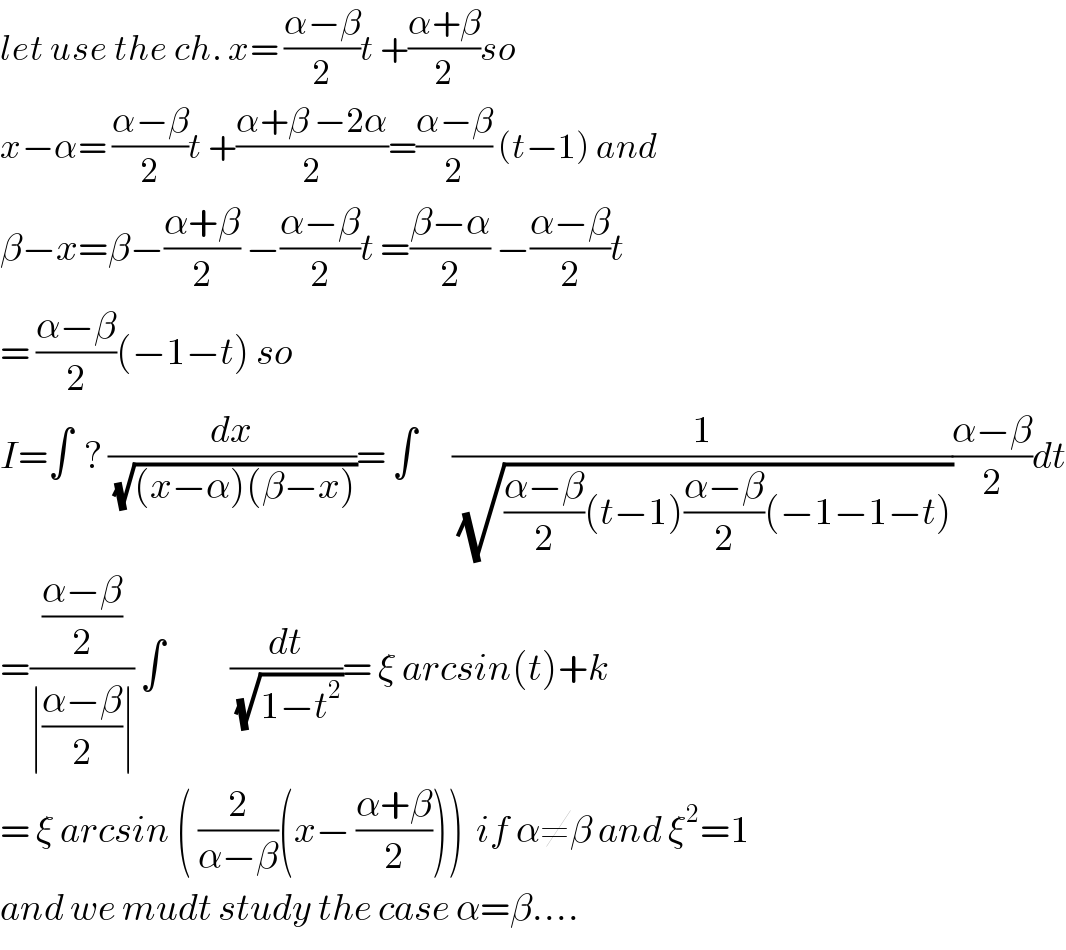
Question Number 28702 by students last updated on 29/Jan/18

$${solve}\:{integration}\:\:\frac{\mathrm{1}}{\sqrt{\left({x}−\alpha\right)\left(\beta−{x}\right)}}\:\:. \\ $$
Commented by abdo imad last updated on 29/Jan/18

$${let}\:{use}\:{the}\:{ch}.\:{x}=\:\frac{\alpha−\beta}{\mathrm{2}}{t}\:+\frac{\alpha+\beta}{\mathrm{2}}{so} \\ $$$${x}−\alpha=\:\frac{\alpha−\beta}{\mathrm{2}}{t}\:+\frac{\alpha+\beta\:−\mathrm{2}\alpha}{\mathrm{2}}=\frac{\alpha−\beta}{\mathrm{2}}\:\left({t}−\mathrm{1}\right)\:{and}\: \\ $$$$\beta−{x}=\beta−\frac{\alpha+\beta}{\mathrm{2}}\:−\frac{\alpha−\beta}{\mathrm{2}}{t}\:=\frac{\beta−\alpha}{\mathrm{2}}\:−\frac{\alpha−\beta}{\mathrm{2}}{t} \\ $$$$=\:\frac{\alpha−\beta}{\mathrm{2}}\left(−\mathrm{1}−{t}\right)\:{so}\: \\ $$$${I}=\int\:\:?\:\frac{{dx}}{\sqrt{\left({x}−\alpha\right)\left(\beta−{x}\right)}}=\:\int\:\:\:\:\:\:\frac{\mathrm{1}}{\sqrt{\frac{\alpha−\beta}{\mathrm{2}}\left({t}−\mathrm{1}\right)\frac{\alpha−\beta}{\mathrm{2}}\left(−\mathrm{1}−\mathrm{1}−{t}\right)}}\frac{\alpha−\beta}{\mathrm{2}}{dt} \\ $$$$=\frac{\frac{\alpha−\beta}{\mathrm{2}}}{\mid\frac{\alpha−\beta}{\mathrm{2}}\mid}\:\int\:\:\:\:\:\:\:\:\:\:\:\frac{{dt}}{\sqrt{\mathrm{1}−{t}^{\mathrm{2}} }}=\:\xi\:{arcsin}\left({t}\right)+{k} \\ $$$$=\:\xi\:{arcsin}\:\left(\:\frac{\mathrm{2}}{\alpha−\beta}\left({x}−\:\frac{\alpha+\beta}{\mathrm{2}}\right)\right)\:\:{if}\:\alpha\neq\beta\:{and}\:\xi^{\mathrm{2}} =\mathrm{1} \\ $$$${and}\:{we}\:{mudt}\:{study}\:{the}\:{case}\:\alpha=\beta.... \\ $$
